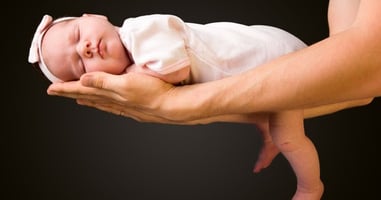Maternal Warmth May Be Protective for Boys Whose Mothers Are Depressed, Study Shows
 |
At 18 months and 24 months, 120 boys and their mothers participated in two semi-structured tasks that required maternal interaction. Mothers’ warmth was coded using the Early Parenting Coding System. They were assessed for lifetime depression using a structured clinical interview when the boys were 42 months old; they reported on current depressive symptoms using the Beck Depression Inventory when the boys were aged 10 and 11. At age 20 the boys underwent functional magnetic resonance imaging while playing monetary reward games.
Maternal warmth during early childhood was associated with levels of activation in two areas crucial to anticipating and experiencing loss or gain of rewards—the striatum and the medial prefrontal cortex (mPFC). And the association between maternal warmth during early childhood and early adolescence and reward function in the striatum and mPFC was stronger for boys exposed to maternal depression relative to boys who were not.
“Greater maternal warmth may prevent boys from overanalyzing their performance during disappointment,” the researchers say. “...[A]s indicated by heightened caudate activation when experiencing loss, boys who have experienced greater maternal warmth may find the pursuit of rewards pleasurable even when experiencing disappointment. These neural responses to reward and loss may promote healthy reward seeking.”
For related information, see the Psychiatric News article, "Maternal Depression May Affect Brains of Unborn Children."
(Image: Oddech/Shutterstock.com)





